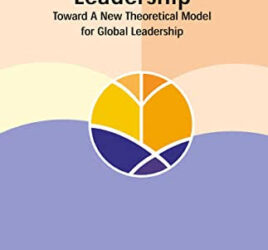The book Shared Strength: Exploring Cross-Cultural Christian Partnerships (Birmingham & Todd, 2010) is an excellent compendium of 10 chapters contributed by leaders from various international institutions. A Compassion International sponsored conference in 2009 brought these leaders together to share their perspectives on key principles of Christian partnership in a cross-cultural context, illustrating these with real-life experiences (Birmingham & Todd, 2010, p. xviii). World Relief, Partners International and Tearfund UK are just four examples of the mission agencies represented. The book is edited by Scott Todd of Compassion International and Beth Birmingham of Eastern University, who also contributed one chapter.
The first chapter, “Preparing Churches from the Majority World for Partnership,” was written by Eduoard Lessegue of Compassion International in Haiti. Writing as a pastor and a national leader, Lessegue stresses the preparation that is needed for churches in the South to partner with organizations and churches in the North (the same could be applied to East-West partnerships). Typically, Majority World churches are the recipients in such partnerships. In particular, these churches need to overcome “the mindset of fatalism, the belief that all events are predetermined by fate and therefore are unalterable—regardless of one’s effort or hard work,” as well as “the mindset of dependency, the belief that people cannot do anything for themselves without a handout or direction from others” (Birmingham & Todd, 2010, pp. 6-7). In addition, these churches need to understand the values of accountability, time, speed, and integrity if they want to successfully partner with the North/West (Birmingham & Todd, 2010, pp. 7-9). Four skills that Lessegue recommends for building successful partnerships are decision-making, vision-casting, negotiation, and conflict resolution (Birmingham & Todd, 2010, pp. 9-10). I found these insights to be very practical and unique to this book, since most of the resources I have read on cross-cultural partnership focus on preparing Western leaders to work with the East/South, not vice versa.
Speaking to a Northern/Western audience, the posture of humility, servanthood and mutual trust is highlighted through the book for building effective partnerships. Bauman speaks of “the superiority we convey—intentionally or not” and the need for repentance (Birmingham & Todd, 2010, p. 37). Edwards tells his Southern partners, “In order for me to serve to you, you must lead me, even though I’m called international director” (Birmingham & Todd, 2010, p. 45). Tollestrup urges leaders to “recognize and affirm the capacity, resourcefulness, and intelligence of our partners and the beneficiaries they serve” (Birmingham & Todd, 2010, p. 70). Birmingham encourages readers that “to understand the position’ they would need to ‘walk a mile in someone else’s shoes’” (Birmingham & Todd, 2010, p. 137). As the editors conclude, “The power is in the posture of collaboration, not merely the ministry outcomes” (Birmingham & Todd, 2010, p. 162). These are the postures of “I Need You,” “Humility,” and “I Value You” (Birmingham & Todd, 2010, pp. 162-165). I cannot agree more wholeheartedly.
This book put a thought in my mind that, when I write and speak about partnership, I need to address both sides of the partnership. For my final thesis project and the forthcoming book, I intent to include a section on the readiness of local partners in Vietnam to work with Western leaders. Going beyond this, I want to stress to Westerners their readiness to be recipients and beneficiaries of the partnership Vietnamese nationals and churches have to offer to them. It is not just a one-way street between donor and client, sponsor and recipient, rich and poor, the haves and have-nots. As the book When Helping Hurts points out, helping is far more likely to hurt if we do not “embrace our mutual brokenness” and poverty (Corbett & Fikkert, 2009). We must embrace the postures of humility, servanthood and mutual trust to establish Christ-centered cross-cultural partnerships.
By Jacob Bloemberg
Birmingham, B., & Todd, S. E. (2010). Shared strength : Exploring cross-cultural Christian partnerships: Compassion International.
Corbett, S., & Fikkert, B. (2009). When helping hurts : how to alleviate poverty without hurting the poor– and yourself. Chicago, IL: Moody Publishers.




